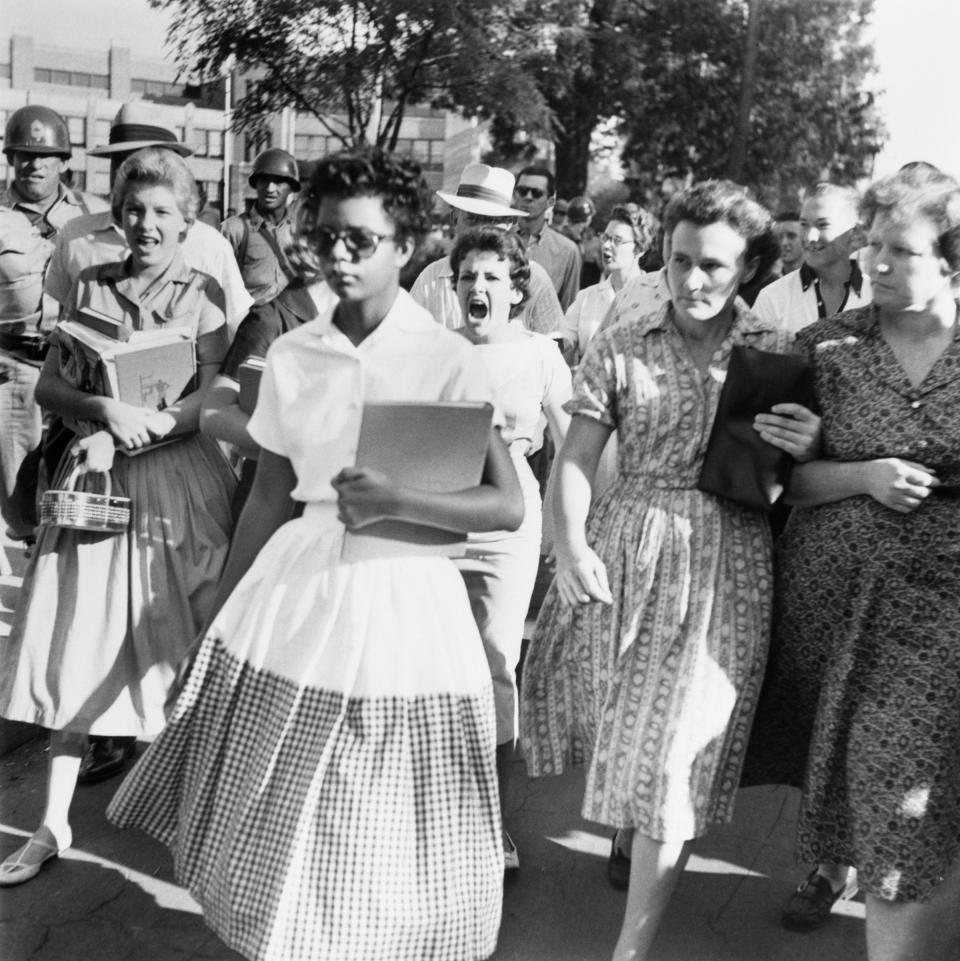The Meaning Behind Beyonce's 'Blackbird' Cover on Cowboy Carter

Credit - Getty Images (2)
Beyoncé's eighth studio album Cowboy Carter, the second act of her three-part project, released at midnight on Friday. One of the most striking songs of its 27 tracks is a soulful cover of the Beatles' "Blackbird," which features a quartet of Black country singers: Tanner Adell, Tiera Kennedy, Brittney Spencer and Reyna Roberts.
The inclusion of "Blackbird" (styled as "Blackbiird" on Cowboy Carter, in keeping with the act ii theme) may come as a surprise to some; for one, in recent years, Beyoncé has rarely done covers of other artists' songs. For another, though Beyoncé has been clear that her new album "ain't a country album, this is a Beyoncé album," many of the songs on the album are firmly in the country space, making her inclusion of the decidedly folk rock classic "Blackbird" especially significant.
Read more: Everything We Know About Beyoncé’s New Album Cowboy Carter
"Blackbird," which was written by Paul McCartney and John Lennon and included on their 1968 self-titled album, is a song about hope and survival, with lyrics that encourage the titular bird to "take these broken wings and learn to fly." However, throughout the years, McCartney has been vocal about the song being inspired by the American civil rights movement and specifically the Little Rock Nine, the trailblazing nine Black students in 1957 who faced immense discrimination after they enrolled in a formerly all-white high school following the landmark Brown vs. Board of Education ruling.

In a 2019 interview with GQ, McCartney detailed how this struggle for racial justice inspired him and Lennon across the pond.
"I was sitting around with my acoustic guitar and I'd heard about the civil rights troubles that were happening in the '60s in Alabama, Mississippi, and Little Rock in particular. So that was in my mind and I just thought, 'It'd be really good if I could write something that if it ever reached any of the people going through those problems, it might kind of give them a little bit of hope,' so I wrote 'Blackbird.'
Read more: ‘I Had a Right to Be at Central’: Remembering Little Rock’s Integration Battle
He also shared that he wrote the song specifically with Black women in the civil rights movement in mind, which makes Beyoncé's decision to cover it with all Black female country artists especially significant.
"In England, a bird is a girl, so I was thinking of a Black girl going through this—you know, now's your time to arise, set yourself free, and take these broken wings. One of the nice things about music is that you know a lot of people listening to you are going to take seriously what you're saying in the song. So I'm very proud of the fact that the Beatles output is always really pretty positive," he said.
In 2016, nearly 60 years after "Blackbird" made its debut, McCartney met two members of the Little Rock Nine, Thelma Mothershed Wair and Elizabeth Eckford, after performing a concert in North Little Rock, AR.
"It's a really important place for us because this is, to me, where civil rights started," McCartney said during the concert. "We would see what was going on and sympathize with the people going through those struggles, and it made me want to write a song that if it ever got back to the people going through those struggles, it might just help them a little."
Incredible to meet two of the Little Rock Nine--pioneers of the civil rights movement and inspiration for Blackbird. pic.twitter.com/QrnOQnqrFX
— Paul McCartney (@PaulMcCartney) May 1, 2016
The song has been covered extensively over the years, by everyone from the Foo Fighters’ Dave Grohl to Sarah McLachlan. Now, Beyoncé's version featuring Adell, Kennedy, Spencer, and Roberts serves as a reminder of the Black women at the forefront of the racial justice movement. It also draws a parallel between the ways in which Black artists and particularly Black women artists still have to fight for space in the industry, especially in the country genre, which has historically been less than welcoming to non-white and women artists.
Write to Cady Lang at cady.lang@timemagazine.com.

 Yahoo Lifestyle
Yahoo Lifestyle 
